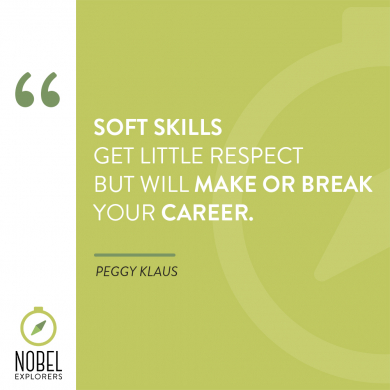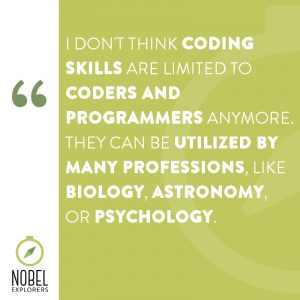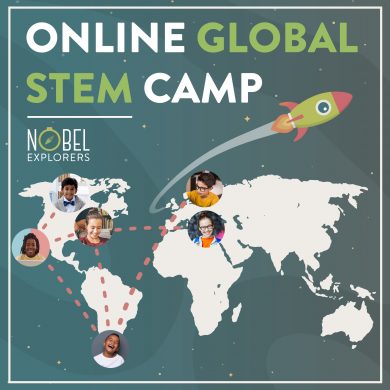Benefits of Nobel Explorers’ Online Internship
Why should you choose a Nobel Explorers’ internship? No one could answer this question better than our interns themselves. That’s why we interviewed Michael, one of our interns, and here’s why he’d recommend this internship to his friends.
Flexibility and comfort
When you think about online internship, the most obvious first benefit is that you can work from the comfort of your home. This lets you save money for gas and any time that you’d spend on travelling. Also, you have complete control over your working environment.
Plus, with Nobel Explorers, there’s a flexible schedule, so you can organize your time and work however you want to. A flexible schedule means that you don’t miss out on anything important to you, whether it’s someone’s birthday or a basketball game you’re planning to watch.
Developing new skills
The goal of a Nobel Explorers’ internship is to teach interns the skills that lay the foundation for their careers.
On one side, they learn hard skills – STEM knowledge. These include web design, web coding, etc. On the other, they gain soft skills – skills that are highly sought-after by employers but are not job-specific. Some of these are teamwork, time management, problem-solving, and communication. Hard and soft skills go hand in hand and make NE interns future-ready!
Learning hard skills
You wonder why learning hard skills is emphasized? Friends of our interns didn’t have internships where they learned actual skills. They were doing a lot of manual work. As Michael said, the job of one of his friends was only to turn the computers on and off all day. Sounds really boring, right? And we’re pretty sure his friend didn’t learn much.
Our internships are designed for our interns to work by themselves – with the help of our hard-skills experts, of course. This way, Michael had a chance to be programming by himself although he’d never had training on javascript, node js, or any other programming language he was using. And today, Michael finds coding fun!
It’s like a puzzle, try to figure out the most efficient way to build something using the least amount of code.”
Website our interns made
The hard skills Nobel Interns Generation I learned during their online internship are website design and website coding. As time moved on, they became pretty comfortable, started to be more efficient, and ended up with an awesome website we couldn’t be more proud of!
Check out the awesome website our interns made
Soft skills
Besides these hard skills, they learned a lot more! Michael didn’t expect this at all! He thought that he’d just be coding, but he also learned soft skills. The two he found the most valuable are communication and teamwork skills.
Communication skills
Miscommunication can lead to frustration, missing meetings, as well as a less productive team, so communicating effectively is a vital skill to master. NE interns become good listeners and accomplished at explaining and clarifying their thoughts and ideas. The end result is the team accomplishes more work together than if they’d all worked alone.
Real Teamwork
In school, students learn teamwork but is it really teamwork? Michael said that whenever he had a group project he kind of hated it because his grades depended on how his team members behaved. So we asked him how the teamwork at Nobel Explorers differs from the teamwork in school.
I’ve never thought about teamwork the way Nobel thinks about it. I’ve never thought it was a positive thing.”
During his internship, Michael learned the importance of being able to work with other people. He found that part of working together is not just working with the perfect partner but working with people who aren’t perfect and learning how to deal with them. It’s important to learn how to talk to your teammates to make you all feel more comfortable and, of course, get a good result at the end.
Are soft skills soft?
When Michael was introduced to the term soft skills, he felt that designation didn’t really do justice to the value of these skills. It implies they’re not as important as hard skills, and therefore get little respect.
Hard skills make you qualified for the job, but soft skills are what helps you write your resume, interview to get that job, and help you stand out.

We agreed that the term “soft skills” underplays their importance in the modern world. So we’re weighing in on the term – what do you think about teamwork skills? Maybe people skills? Or social skills?
Professional development
At Nobel Explorers, you have an opportunity to be part of a real software development team. Not many high-school students have this kind of experience. A lot of people have this chance only when they get their first job. Having this kind of experience can help you adjust to the work environment faster, get better insight into the workplace, and boost your confidence at work.
A real software development team is also an international team. Working within an international team means a lot when it comes to preparation for the future of work, as it seems more and more companies will be looking into remote work and international teams.
Skills transfer
Skills you learn at Nobel aren’t necessarily for work only– they can be very useful in your private life too. It’s about how you communicate with other people, and that’s definitely important in every relationship we have. You learn how to improve your work when things don’t go well. Also, you learn how to plan your time and how to effectively split tasks up, and that’s the best way to avoid procrastination.
Which of these skills do you think is the most important? Leave us a comment!
If you like what you’ve read, we only have one more thing to say to you: We can’t wait to meet you!



